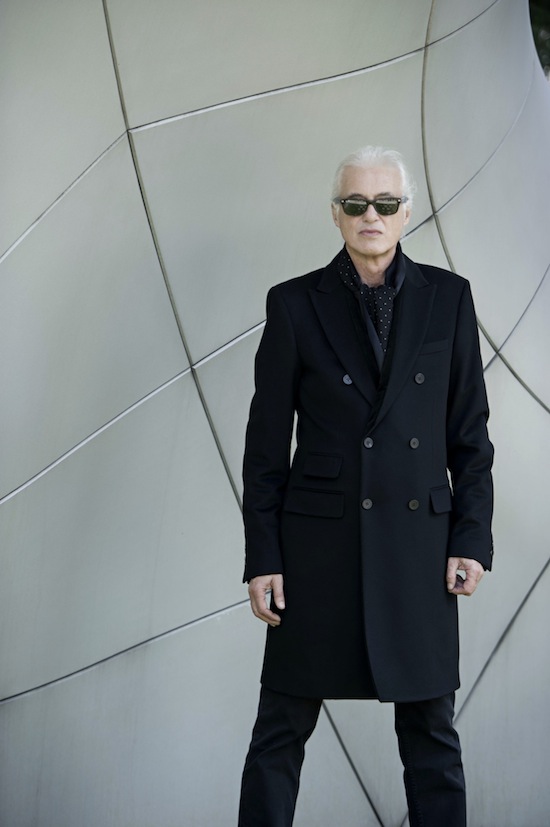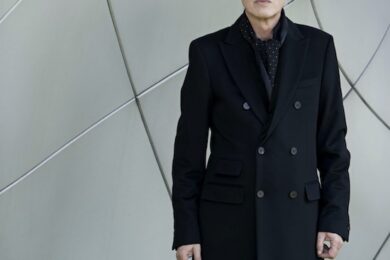"Oh yeah!" Jimmy Page’s eyes have widened and are sparkling the way they do whenever he gets animated. Which, to be fair, is quite lot. This time, he’s responding to the question of whether he’d ever seen The Velvet Underground in full flight live in concert.
"I saw them about three or four times and let me tell you, they were phenomenal."
He pauses momentarily as he re-considers his opinion and corrects himself: "No. No, they were intense!"
He continues: "I’d heard their first album when I was touring the States with The Yardbirds. It’s an incredible album, it really is. It still sounds marvelous. The Yardbirds used to cover ‘I’m Waiting For My Man’ a lot; we used to drop it into the middle of ‘I’m A Man’. I’m pretty certain we were the first people to cover The Velvet Underground."
To discover that Jimmy Page, guitarist, producer and driving force behind Led Zeppelin – probably the biggest rock behemoth of the 1970s – is not only a long-standing fan of The Velvet Underground but also an early adopter of the New York quartet’s material shouldn’t really come as too much of a surprise. Both bands dealt a shared aesthetic of hypnotic and pulverising riffs, drones, alternate tunings, extreme volume, in concert improvisation and the ability to pull back and deliver moments of tenderness that offered respite as much as they did a glimpse at another side of the musicians creating these influential works. In doing so – for both good and for ill – both bands laid the foundations for subsequent generations of musicians whose fingerprints were dabbed way outside of their own fields. And, in a moment of coincidence, Page also produced the 1965 single, ‘I’m Not Sayin” for a pre-Velvets Nico.
TQ is meeting Jimmy Page in the ornate surroundings of the Gore Hotel, which is located behind the Royal Albert Hall in Kensington. With its deep panelled walls and chandeliers, the venue somehow manages to offer an imposing sense of gloom despite letting in sunlight from its large windows. In short, this is the kind of location you’d expect to find Jimmy Page in. But then again, Kensington has been Page’s manor for quite some time. Led Zeppelin played the Royal Albert Hall on the guitarist’s 26th birthday in 1970, he owns a house at the other end of the High Street and his erstwhile bookshop, Equinox, was located not too far away.
Now aged 70, Page cuts a fine figure. He’s taller than you’d expect and his sliver hair is swept back and tied at the back in a bun. Slim and dressed in black jeans, boots and a leather jacket, he offers a firm handshake and it soon becomes evident that he’s possessed of a sense of humour that belies his reputation. "The Quietus? Oh, I thought you said The Coitus. Now that would’ve been a conversation," he says.
The next two releases – that’ll be the untitled fourth album and Houses Of The Holy – in the ongoing series of Led Zeppelin re-masters have just been released and Page is quite clearly proud of the music he helped make and its lasting popularity. These are enduring works and it’s worth taking the time to remove the music from the legends and myths of hedonism, sexual and narcotic excess, violence and darkness that have come, on occasion, to overtake the body of work made by Jimmy Page, Robert Plant, John Paul Jones and the late John Bonham. Having sold around 37 million copies, the fourth album, released in 1971, is the third biggest selling in the United States and it’s perhaps the album’s over-familiarity that prevents it from being actually listened to and absorbed on its own terms. The re-mastering work is splendid thanks to an increased bottom end and a brightness that’s been lacking in previous editions. For example, ‘Black Dog’ sparkles with an effervescence that accentuates the seductive power of that circular riff, the off-kilter time signatures that lock in with the bass groove and the howling a cappella the appears between the musical explosions, and the simmering sexual tension is palpable throughout.
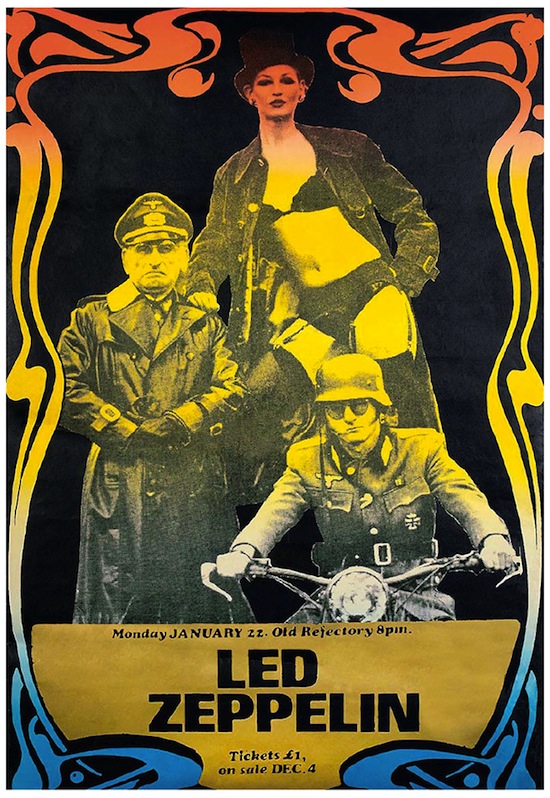
The fourth album is Led Zeppelin’s most complete and compact statement. It encompasses everything that the band had worked towards on the previous albums. Possessed of an incredible power, there are also moments of the light and shade that Page has spoken so frequently of. There are delicate moments such as ‘Going To California’ as well as the seductive folk of ‘Battle Of Evermore’ that contradict the album’s reputation as an exercise in heavy rock. The ubiquitous ‘Stairway To Heaven’, which has come to embarrass Robert Plant over the years, shows a band fully in control of its creativity as it strives and achieves in making a unique musical statement.
What’s also worth noting is Page’s role as producer. Unlike many guitarists in his position, he doesn’t overplay his hand. How easy or difficult was it to divorce those two parts from each other.
"I don’t divorce myself as guitarist and producer," he states recalling the making of the fourth album. "It was a conscious decision to have the guitar in the perspective of the group and not to have it overpowering all the way."
Warming to the theme, Page cites the earlier influences of the 50s and the bearing they had on the music he made.
"I guess that was a result of the things that I used to listen to in my teens," he says. "I was listening to the rockabilly records and how you placed the instruments in relation to the voice, and also the Chicago blues movement of the 50s which had some incredible recordings on Vee-Jay and Chess labels. I used to listen to them from that perspective: why did these things work and what effects did they have? I wanted to move that on into a sort of new field and break new ground. So the vehicle of Led Zeppelin was a guitar tour de force but certainly not at the expense of the other musicians.
"See, this is what was really uncharacteristic at this point in time. I think that you had everyone playing really intricate parts but it was blend of these four marvelous musicians to take on this really alchemical quality to make a fifth element."
But was Page a hard taskmaster? There’s one story where a take of ‘Stairway To Heaven’ had been made to the satisfaction of the other members yet Page felt they had a better one in them.
"I don’t know about that," he says dismissively. "We weren’t one of those bands that did an extra take for luck. You knew exactly where it was; it could be the take beforehand but the one important thing to remember about Led Zeppelin in the studio was that we didn’t labour the point. We’d get match ready and then start recording when the whole character of the song was still vibrating. If you carried on doing take after take after take then you’d lose the essence of the song. It was all about capturing the performance."
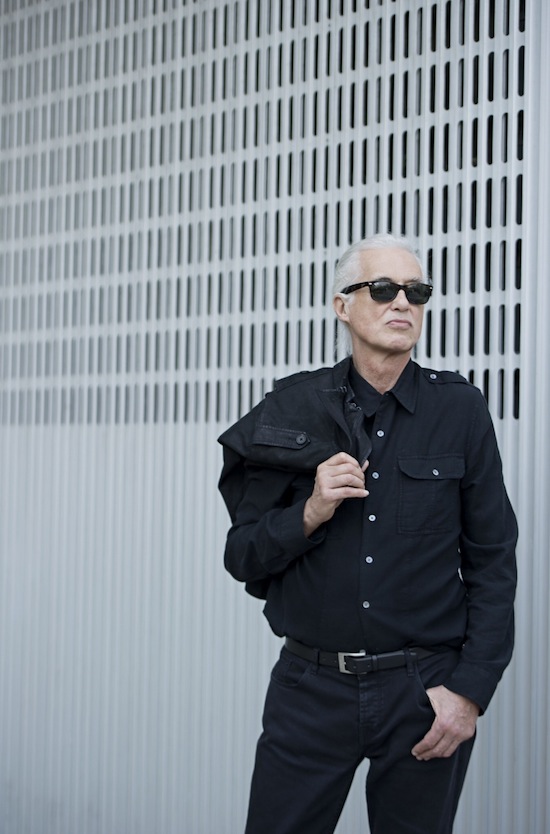
To these ears, Led Zeppelin’s fourth album is the band’s most mystical. The drones, open strings, tunings and riffs that run through its eight tracks create a hypnotic effect. Listening to ‘Four Sticks’ with its mantra-like riff and a middle eight that suggests Eastern touches, one is struck by how Plant’s voice becomes less a vehicle for the lyrics and more an instrument that’s equal to those of his colleagues. What attracted Page to that sound and approach and what kind of reaction was he hoping to elicit from his listeners?
"Well, I’d really accessed the hypnotic elements of music from the Chicago blues with stuff like Howling Wolf," explains Page. "But as far as riffs and trance goes, I find that stuff fascinating. If you listen to the version of ‘Whole Lotta Love’ on the companion disc of Led Zeppelin II, that side of things takes on a whole different character and it’s like a voodoo ritual going on.
"The good thing about the albums out in that point of the 70s was that there wasn’t any sort of visual imagery to go with it like videos, so people came up with their own pictures of whatever they wanted and so they made a connection with Led Zeppelin and that was really cool."
Page cites the band’s decision to work in the residential environs of Headley Grange, a dilapidated former poor house in Hampshire, as another vital factor in the music that Led Zeppelin was making.
"With the fourth album, the fact that it was recorded under conditions where we were living in a house; eating, sleeping and recording there with the benefit of a mobile recording studio that was sitting out in the drive, it really gave us the opportunity to give 100% commitment to the record," he says.
"The whole work ethic was absolutely superb so we could – did – arrive at things like ‘When The Levee Breaks’, which is so ominous. It’s so dark. It’s so dark that there isn’t a colour to describe it," he continues. "And then you’ve got something that is really caressing like ‘Going To California’. You’ve got these extremes of music there.
"We wanted to concentrate all our energies and the work ethic and the ethos by going there to make music that was so strong and intoxicating to each and every one of us. That’s the key to the fourth album: it was residential."
Such was the work rate that three tracks – ‘Down By The Seaside’, ‘Night Flight’ and ‘Boogie With Stu’ – were left on the shelf and didn’t see the light of day until 1975’s Physical Graffiti. Yet given such a treasure trove, Page knew exactly what to use and what to leave off.
"It was very clear to me at the time," he states emphatically. "The fourth album showcases perfectly everything to do with the band, whether it’s the individual performances or how it works collectively, the production and everything to do with it. It’s a really strong time capsule; that’s what it is and so different from the albums that came before. Collectively we made such fine music that it was as if fate put us together and decreed we made music that would change things. I know that certainly that was what I wanted to do – to make music that made a difference."
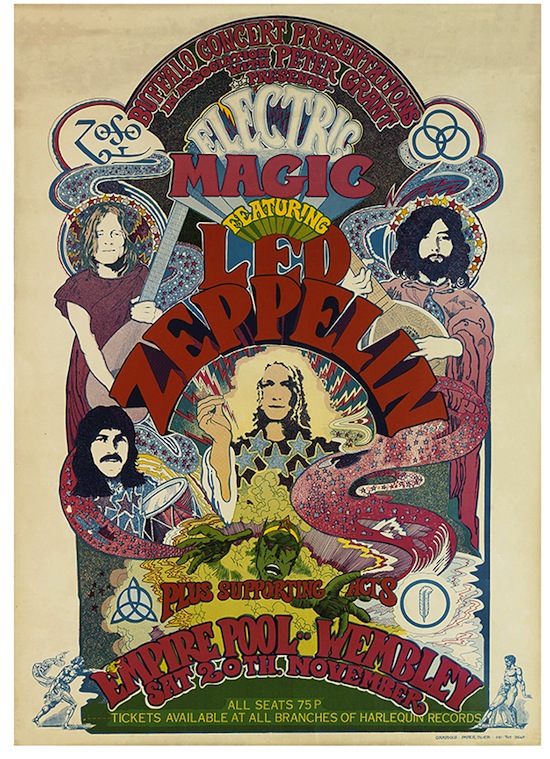
Such was the band’s thirst for musical experimentation that Page and Plant stopped off in India in 1972 to explore the possibilities of blending their material with further Eastern influences by working with Bombay Symphony Orchestra.
"I was keen to work with Indian musicians and to see how it would work as a fusion with music that they’d never heard before," explains Page. "We did ‘Friends’ which Robert sang on and ‘Four Sticks’ which was done as an instrumental and it was an exercise, if you like, to see what could be done. And, as an exercise, it was incredibly successful. These musicians were classically trained within their own idiom and they had this very strong character of their indigenous music. It was something that was worth doing for the sake of a few hours to see how easy it was do that and it was successful."
Asked of these recordings will ever see the light of day, Page’s eyes narrow and smiling enigmatically he’ll only allow, "I don’t know. We’ll have to wait and see."
It’s a tempting prospect but what’s unlikely to emerge at any point in the future is any more footage of Led Zeppelin. It seems bizarre – by 21st century digital standards, at least – that the one-time biggest band in the world has such a slender visual documentation to hand. Talking to Page, it’s difficult to shake the feeling that this is one aspect of the band’s past that he’d love to change if he could.
"You’re right. There’s hardly any footage of the band," he sighs.
Any regrets about that?
"It is what it is," he replies. "In a way it’s a sort of a relief because there’s a duality to it. It would’ve been good to have had that filmed document of us rehearsing but with these re-issues without the visual accompaniment people can make up their own visual images. But you have to work with what’s at your disposal and make a lot out of very little."
With our time running short, Page perks up and his eyes widen once again when the topic of new music from the guitarist is raised. He’s been promising new material since the release of the 2010 documentary It Might Get Loud, a film that gave a tantalising glimpse of what might come.
"I have new music now and I had new music then. I’m really keen to be able to present that in a solo capacity," he enthuses.
So why the delay?
"There were things that came along that really needed serious attention," he replies. "One of those was [O2 live album] Celebration Day, another thing was the Led Zeppelin website, then there was the book of photographs that I wanted to make sure was complete and then there was the Led Zeppelin studio material. They might seem academic but never the less they were all time consuming. But now I’ve got the opportunity to go into a rehearsal situation next year and then finally get it happening."
He smiles again as he considers the likelihood of new music knowing that his story is far from over. And his eyes keep sparkling.
The remastered Led Zeppelin IV and Houses Of The Holy are out now on Rhino/Atlantic, available in various formats including companion discs with unreleased material

